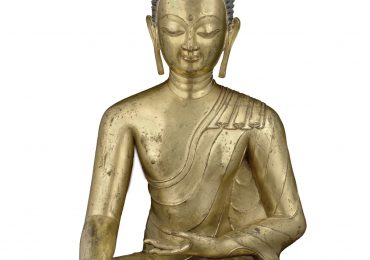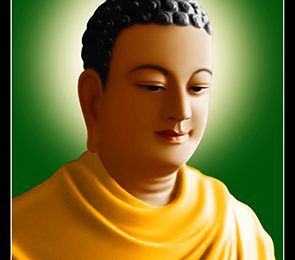
Giving is essential to Buddhism. Giving includes charity, or giving material help to people in want. It also includes giving spiritual guidance to those who seek it and loving kindness to all who need it. However, one’s motivation for giving to others is at least as important as what is given.
What is right or wrong motivation? In sutra 4:236 of the Anguttara Nikaya, a collection of texts in the Sutta-pitaka, lists a number of motivations for giving.
These include being shamed or intimidated into giving; giving to receive a favor; giving to feel good about yourself. These are impure motivations.
The Buddha taught that when we give to others, we give without expectation of reward. We give without attaching to either the gift or the recipient. We practice giving to release greed and self-clinging.
Some teachers propose that giving is good because it accrues merit and creates karma that will bring future happiness. Others say that even this is self-clinging and an expectation of reward. In many schools, people are encouraged to dedicate merit to the liberation of others.
PARAMITAS
Giving with pure motivation is called dana paramita (Sanskrit), or dana parami (Pali), which means “perfection of giving.” There are lists of perfections that vary somewhat between Theravada and Mahayana Buddhism, but dana, giving, is the first perfection on every list.
The perfections might be thought of as strengths or virtues that lead one to enlightenment.
Theravadin monk and scholar Bhikkhu Bodhi said,
“The practice of giving is universally recognized as one of the most basic human virtues, a quality that testifies to the depth of one’s humanity and one’s capacity for self-transcendence. In the teaching of the Buddha, too, the practice of giving claims a place of special eminence, one which singles it out as being in a sense the foundation and seed of spiritual development.”
THE IMPORTANCE OF RECEIVING
It’s important to remember that there is no giving without receiving, and no givers without receivers. Therefore, giving and receiving arise together; one is not possible without the other. Ultimately, giving and receiving, giver and receiver, are one. Giving and receiving with this understanding is the perfection of giving. As long as we are sorting ourselves into givers and receivers, however, we are still falling short of dana paramita.
Zen monk Shohaku Okumura wrote in Soto Zen Journal that for a time he didn’t want to receive gifts from others, thinking that he should be giving, not taking. “When we understand this teaching in this way, we simply create another standard to measure gaining and losing. We are still in the framework of gaining and losing,” he wrote. When giving is perfect, there is no loss and no gain.
In Japan, when monks carry out traditional alms begging, they wear huge straw hats that partly obscure their faces. The hats also prevent them from seeing the faces of those giving them alms. No giver, no receiver; this is pure giving.
GIVE WITHOUT ATTACHMENT
We are advised to give without attaching to either the gift or the recipient. What does that mean?
In Buddhism, to avoid attachment doesn’t mean we can’t have any friends. Quite the opposite, actually. Attachment can only happen when there are at least two separate things — an attacher, and something to attach to. But, sorting the world into subjects and objects is a delusion.
Attachment, then, comes from a habit of mind that sorts the world into “me” and “everything else.” Attachment leads to possessiveness and a tendency to manipulate everything, including people, to your own personal advantage. To be non-attached is to recognize that nothing is really separate.
This brings us back to the realization that the giver and the receiver are one. And the gift isn’t separate, either. So, we give without expectation of reward from the recipient — including a “thank you” — and we place no conditions on the gift.
A HABIT OF GENEROSITY
Dana paramita is sometimes translated “perfection of generosity.” A generous spirit is about more than just giving to charity. It is a spirit of responding to the world and giving what is needed and appropriate at the time.
This spirit of generosity is an important foundation of practice. It helps tear down our ego-walls while it relieves some of the suffering of the world. And it also includes being grateful for the generosity shown to you. This is the practice of dana paramita.
By Barbara O’Brien








